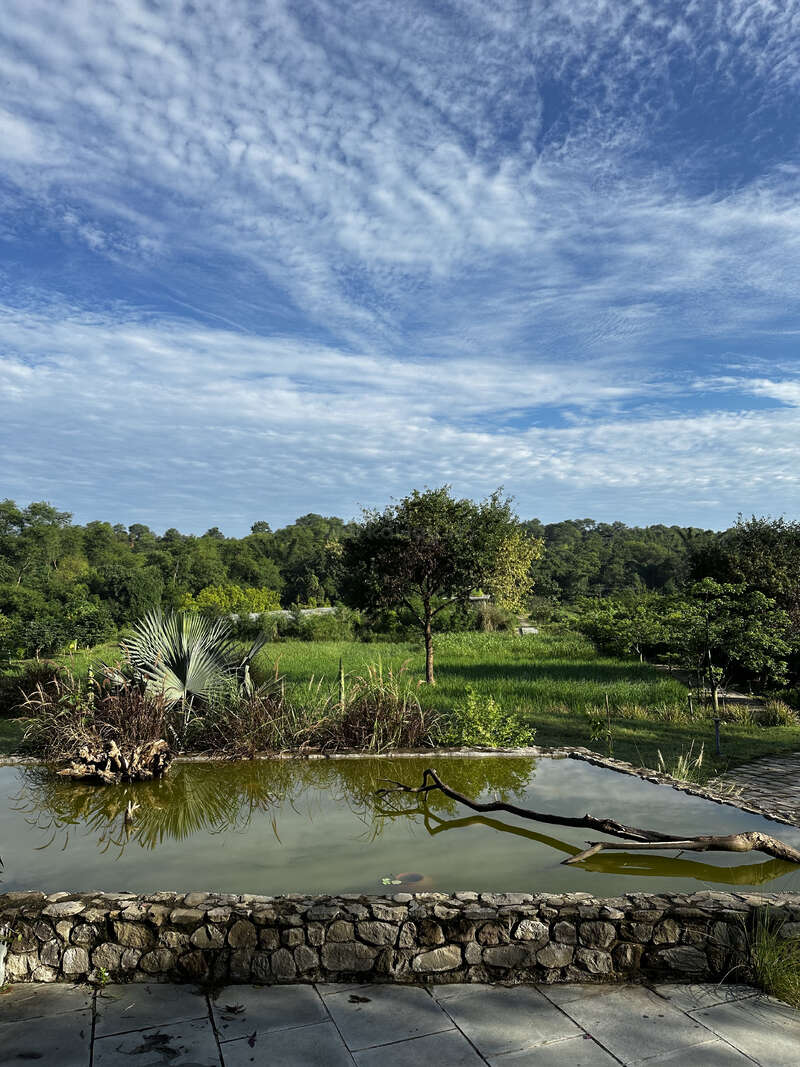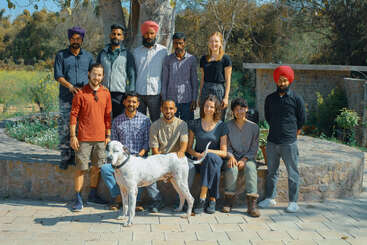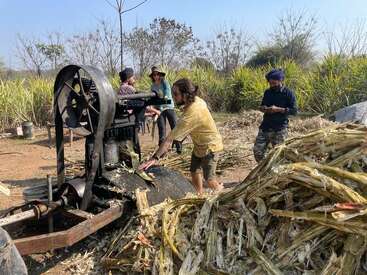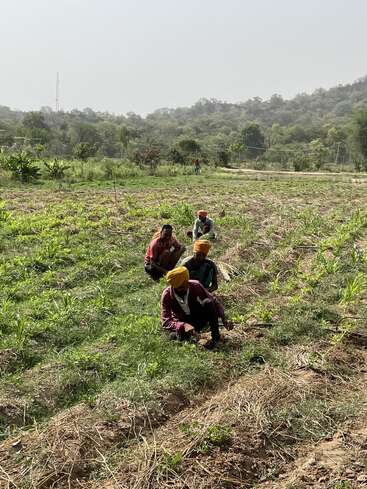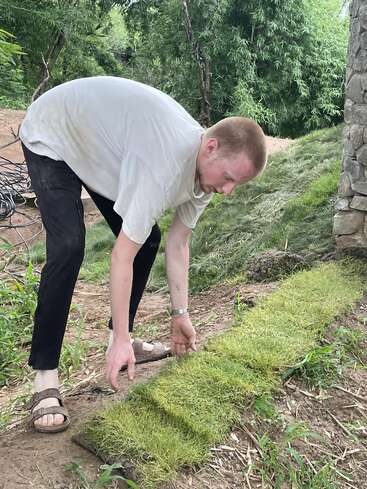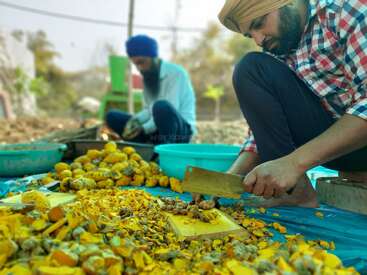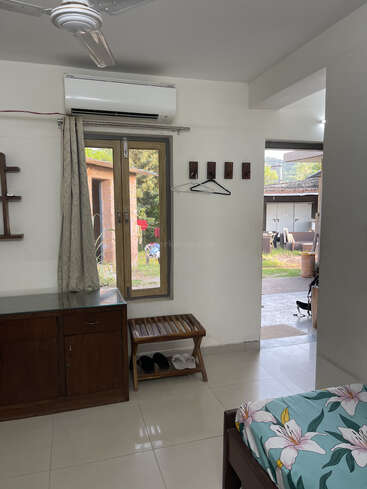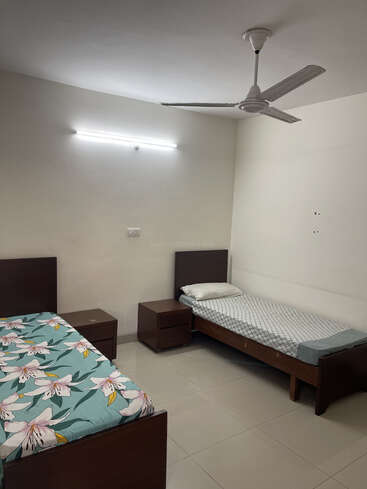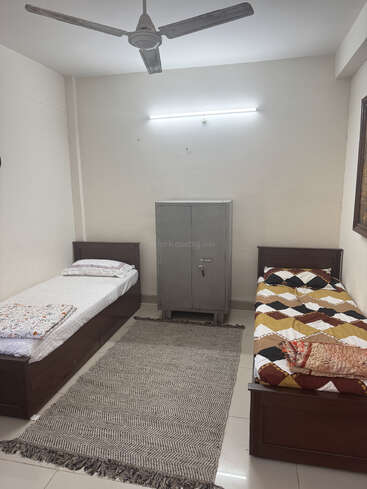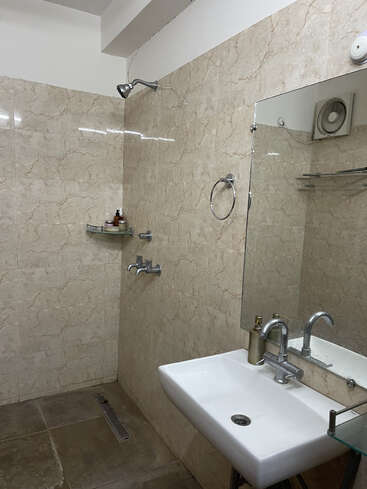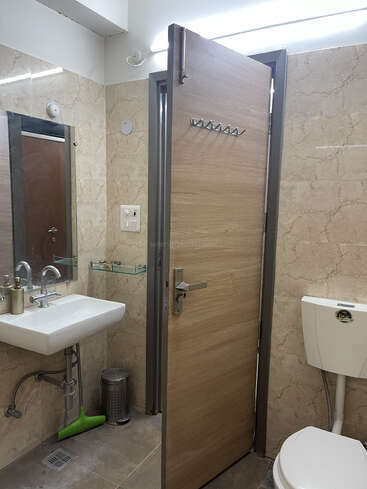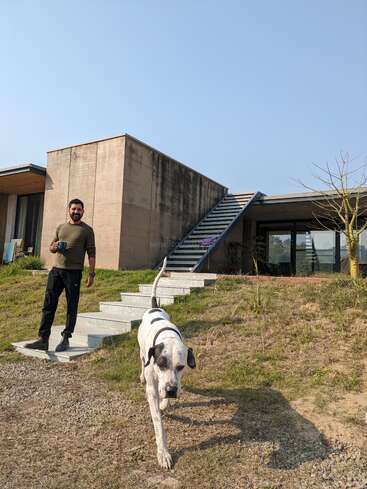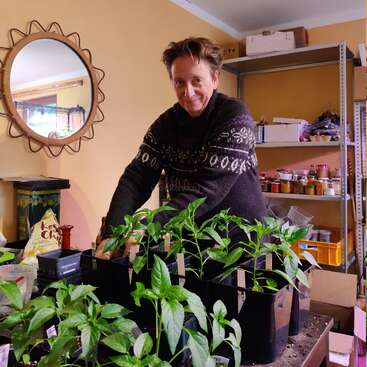Profilangaben

Host Bewertung
100 %

Letzte Antwort
1 Feb. 2026

Beantwortungsquote
100.0 %
Antwortet in der Regel innerh. 4 Tage

Feedback
26

Verifizierte E-Mail
Abzeichen (3)




Finde deinen perfekten Gastgeber
Geforderte Mindest-Aufenthaltsdauer: mindestens 2 Wochen
Informationen

Beschreibung
We’re a family-run permaculture farm in Village Naurangpur (Ropar, Punjab), set in an old abandoned hamlet “Bae Chirag Mauza” on the Shivalik foothills near the Himachal border. Reserve forests, seasonal cho (stream) beds and mud hills surround us; you’ll often spot peacocks, kingfishers, hare, sambar/barking deer, porcupine, wild boar—and, very rarely, leopard.
Our cottages are built from local materials: stabilised rammed-earth walls using soil from the land, planted/insulated roofs, and orientation for winter sun/summer shade. Furniture is hand-crafted on the farm from native sheesham.
This is our home and way of life, not a resort.
Arten von Hilfe und Lernmöglichkeiten
Kunstprojekte
Hilfe bei Ökoprojekten
Gartenarbeiten
Heimwerker- und Bauarbeiten
Mithilfe auf einem Bauernhof
Hausarbeiten
Tourismus / Gastgewerbe
Handwerkliche Arbeiten
Haus- & Haustiersitting

Interessengebiete
Politik & SozialesHaustiereKulturFarmarbeitKunst & DesignKochen & BackenHeimwerken & DIYGärtnernGartenarbeitenTischlerarbeitenArchitekturGebirgeNaturYoga / WellnessOutdoor-AktivitätenWandern
UNO-Ziele für nachhaltige Entwicklung, die dieser Gastgeber verfolgt

Kultureller Austausch und Lernmöglichkeiten
We practice permanent agriculture (permaculture) at the farm. Which is a more sustainable way of organic farming. We have not tampered with the landscape much but used it to our advantage. During your stay you have the opportunity to learn how permaculture allows our sustainable way of life. We wish to keep our activities in sync with nature without disturbing the surroundings. Everything grown here is free of any form of chemical fertilizers or pesticides. This is a more labor-intensive form of farming than the modern mechanized methods used nowadays, but it generates more employment and less pollution.

Arbeit
Hours: 5 hours/day, 5 days/week · Days off: 2/week · Minimum stay: 2 weeks
Tasks vary by season and your skills; you’ll work alongside our friendly farm team (limited English).
1. Nursery & beds: seed sowing, transplanting, mulching, weeding, staking, basic irrigation checks.
2. Soil & compost: making/turning compost, leaf-mould, mulches; bio-enzymes/Jeevamrut prep as guided.
3. Orchard & tree care: pruning light growth, mulching basins, pest scouting (non-chemical controls).
4. Harvest & post-harvest: picking to spec, washing, sorting, drying, and packing crates/baskets.
5. Value-added produce: simple preserves/pickles/dry goods; labeling, dating, and inventory.
6. Poultry & bees (assist): feed/water checks, coop cleaning, egg collection; hive area upkeep (no handling unless trained).
7. Paths & signage: clearing paths, repairing mulch edges, placing/repainting simple way-finders.
8. Tool care & storage: clean, oil, and put back tools; keep sheds tidy and accounted for.
9. Events setup (as needed): laying mats/ manjis, cleanup after activities.
10. Small to medium items at the wood workshop for the farm
11. Small to medium items at the pottery workshop for the farm
If any item feels unsafe or unfamiliar, you’ll be shown the method first—then work only within what you’re comfortable doing.
Gesprochene Sprachen
Englisch: Fließend
Hindi: Fließend
Punjabi (Eastern): Fließend
Unterkunft
Rooms: Simple, clean room with two single beds (usually 2 volunteers/room; solo gets the room). Attached bathroom with geyser, bedding, towel, and a small desk. Ceiling fan in all rooms; standing cooler in summer. One room has AC at ₹800/day if you choose to run it (solo or split between two). Warm blankets in winter.
Meals (self-service): 3 home-style meals—typically dal + seasonal sabzi + roti/rice. Serve yourself and wash your own plate/cutlery. If we cook something special for guests, we may share when possible. You may occassionally cook your own food with your own ingredients but only when the kitchen isn’t busy.
Linens & laundry: You’ll receive 2 sets of bedsheets + pillow covers + 1 towel. Change every 3 days; wash, iron, and return clean to the cupboard before you leave. Washing machine available (self-wash).
Bikes available to explore nearby lanes.
Hut (optional): We also host volunteers in our hut for a closer feel of farm nights—great for stargazing and cool-weather bonfires. The bathroom is not a permamnent structure and made with the local grass/reeds and is not attached (20 steps away from the hut) and is shared amongst all who live at the hut.
Was noch ...
A. Café & Lounge (shared): Sit, read, and hang out quietly. Natural ventilation—please don’t use AC here. Clean up after use (return books, clear cups/plates, wipe tables).
B. Quiet hours: 10:00 PM–6:00 AM. Keep common spaces tidy; use tools only as shown. Water and power are precious—use thoughtfully.
C. Pets: Our dog Balloo is friendly with people, but we can’t host other pets.
D. Connectivity: Limited mobile network; most things work best on Wi-Fi (details on arrival).
E. Health & safety: First-aid on site; Rupnagar hospital ~30 min, Chandigarh for full facilities. Bring personal meds; a tetanus shot is sensible.
F. Getting here
- From Chandigarh (easiest): Cab from airport/railway station to the farm (~1–1.5 hrs). We can share a reliable driver’s number.
- Train/bus: Chandigarh → Rupnagar; then local cab/auto (~30 min) to the farm.
- We’ll share the Google pin + last-mile directions a day before arrival; try to arrive in daylight.
Nearby, you can visit the Bibi Mumtazgarh Sahib gurdwara (historically significant). Birding, wildlife spotting and short hikes start right from the farm.
Etwas mehr Information

Internet Zugang

Eingeschränkter Internet Zugang

Wir besitzen Tiere

Wir sind Raucher

Familien möglich

Kann Digital Nomads unterbringen
Yes. Wi-Fi is decent but, being remote, occasional faults are possible. Accommodation is a two-person room with attached bath or tents (by season).

Platz zum Abstellen von Camper Vans
We have a patch of land about 100 meters from the farm where depending on the kind of campervan you have, we can figure it out together. Please dicuss this in advance with us.

Kapazität - wie viele Workawayer maximal
mehr als zwei

Meine Tiere/Haustiere
Baloo
Chatte mit Workawayern, die diesen Gastgeber besucht haben

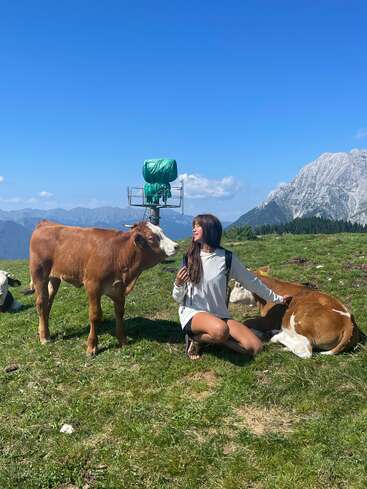




Feedback (21)
Weitere Bilder
Chatte mit Workawayern, die diesen Gastgeber besucht haben






Feedback
Dies sind zusätzliche optionale Bewertungen, wenn Mitglieder Feedback hinterlassen. Es wird die im Schnitt hinterlassene Bewertung für jede Option angezeigt.
Korrekte Angaben im Profil:
(5.0)
Kultureller Austausch:
(5.0)
Kommunikation:
(5.0)
I wish her all the best for her future travels.
He was fun to hang out with as well and made a great team with rest of the volunteers as well.
He never… read more
If you are looking for a place in nature and want to learn about permaculture principles and how to apply them, this place is a MUST GO for you. I stayed for nearly 2 weeks together with 3 other volunteers. I appreciated the hospitality of Siddharr and his ‚gang‘ :D occasionally we went out to experience something beyond e.g.… read more
Sid is beyond generous and accommodating, and the entire staff is like a family. From the moment I arrived, I felt completely at home. Whether… read more
Five years ago, when Siddhartha started his farm, a local farmer persuaded him not to waste time and money on pipe dreams. And recently, this same farmer came to Siddhartha for advice, as he himself decided to start organic farming on part of his land.
The accommodation is very… read more
Siddharta is a very kind and caring person. He has realised his goal in creating this permaculture farm, and he is very dedicated to the project. It has been a great experience to participate in his project together with his hard working staff. We… read more
There's a lot to do and a big variety in the daily tasks. You can also try and start your own project if it fit in the idea of sustainable farming or community building, Siddharta… read more
first of all, sidhart, the host, is a great guy and its fun just to seat and talk with him. sidhart built this farm and you can see that he thought about every detail in the farm.
the room for the volunteers is very good (better than most of the places i slept in india), and everything that i… read more
The Farm is tucked away in a really beautiful forested area and since the project is in the beginning stage, there is always something to do but i was not pressured to work at all, you can get involved in whatever ways you can add something to the project. During my stay there was more… read more
